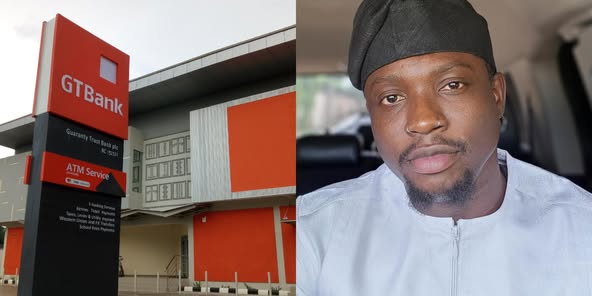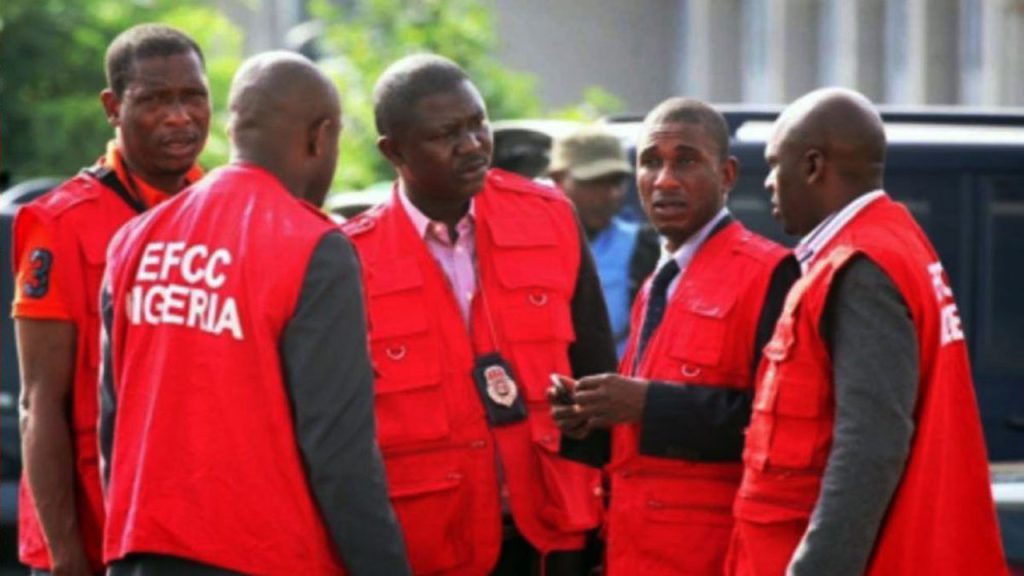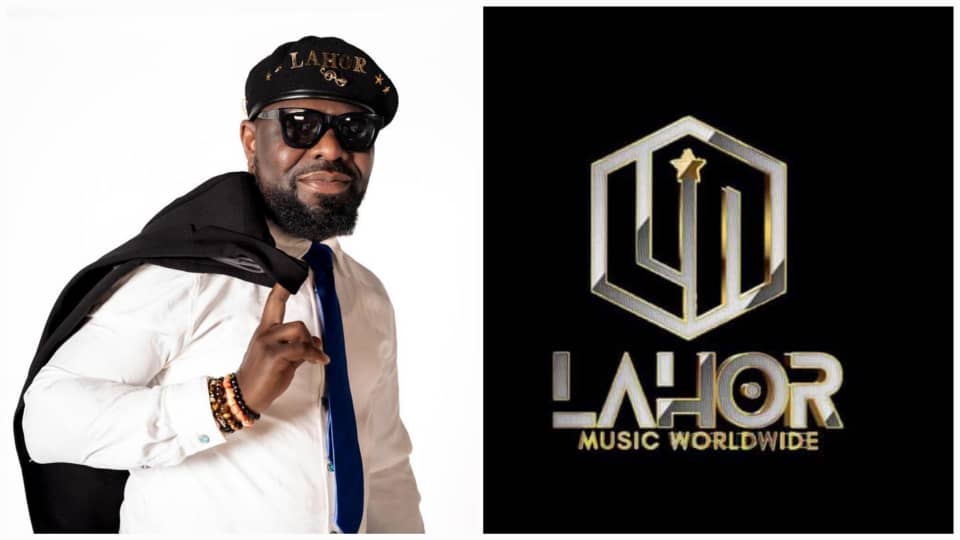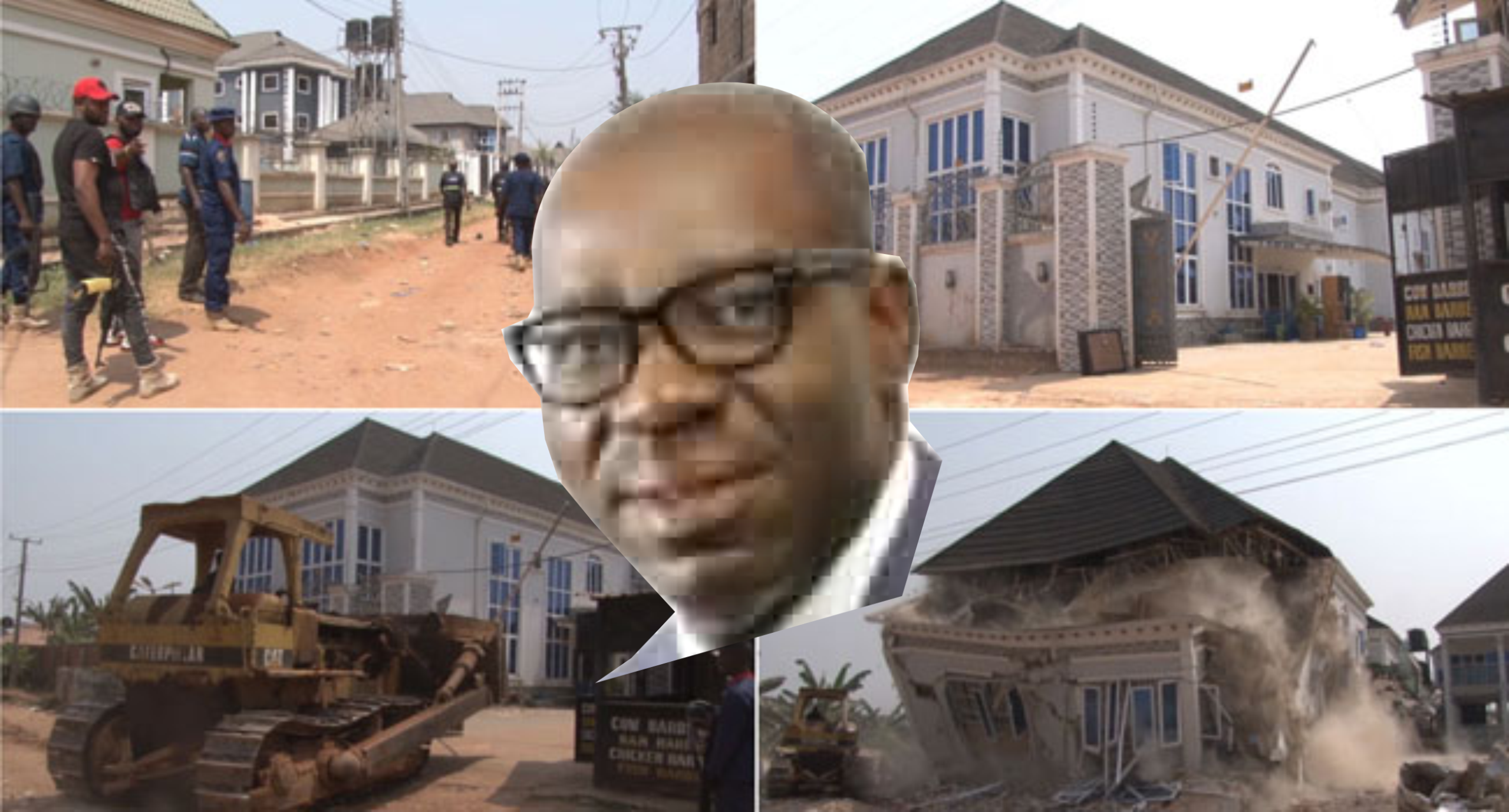by Jeffrey Botimi 4th May 2025

On May 2, 2025, Nigerian activist and social media influencer Martins Vincent Otse, popularly known as VeryDarkMan (VDM), was arrested at a Guaranty Trust Bank (GTBank) branch in Abuja. The arrest followed his public complaint about unauthorized deductions from his mother’s account. The individuals who apprehended him were masked, leading to speculation about their affiliation, with some reports suggesting they were operatives of the Economic and Financial Crimes Commission (EFCC) or the Department of State Services (DSS).
Prior to his arrest, VDM had been vocal about alleged corruption within the EFCC. In February 2025, he accused the agency of plotting to frame him, citing visits by a prominent lawyer and a social media influencer to the EFCC’s Abuja office. According to VDM, these individuals presented the EFCC with videos and photos of him spraying money at an event, suggesting this as an opportunity to target him due to his criticisms of the commission and its leadership.

VDM also played a role in bringing to light bribery allegations involving the EFCC and Nigerian crossdresser Idris Okuneye, known as Bobrisky. In September 2024, VDM released an audio recording in which Bobrisky purportedly claimed that EFCC officials accepted a N15 million bribe to drop money laundering charges against him. This revelation prompted the EFCC to invite both Bobrisky and VDM for questioning and led to an internal investigation within the commission.
VDM’s outspoken nature has previously led to legal challenges. In 2024, he faced arrests on charges of cyberbullying and defamation, including allegations against public figures and officials . His recent arrest at GTBank has sparked public debate, with supporters arguing that it reflects a pattern of targeting whistleblowers, while critics question the methods and motivations behind his activism.
The arrest of VeryDarkMan underscores the tensions between activism, freedom of expression, and governmental authority in Nigeria. As investigations continue, the incident raises important questions about the treatment of activists and the mechanisms in place to address allegations of corruption within public institutions.



0vgre4
cv02bx
8tvsfb
3g4yhj
2fqvs1
s2b20k
765s1j
ndsu39
uhcxnr
lidcfp
7d8b4o
d9z8uz
6ije2z
j0g1on
Excellent items from you, man. I’ve remember your stuff previous to and you’re simply extremely great. I actually like what you’ve received right here, certainly like what you are saying and the way during which you are saying it. You make it enjoyable and you still take care of to keep it smart. I can’t wait to learn far more from you. That is actually a great website.
slot365 cung cấp số hotline hỗ trợ khách hàng 24/7: (+44) 2036085161 hoặc (+44) 7436852791. Tuy nhiên, do chênh lệch múi giờ, bạn nên liên hệ qua các phương thức khác như trò chuyện trực tiếp, email hoặc Zalo để được hỗ trợ nhanh chóng hơn.
slot365 cung cấp số hotline hỗ trợ khách hàng 24/7: (+44) 2036085161 hoặc (+44) 7436852791. Tuy nhiên, do chênh lệch múi giờ, bạn nên liên hệ qua các phương thức khác như trò chuyện trực tiếp, email hoặc Zalo để được hỗ trợ nhanh chóng hơn.
slot365 cung cấp số hotline hỗ trợ khách hàng 24/7: (+44) 2036085161 hoặc (+44) 7436852791. Tuy nhiên, do chênh lệch múi giờ, bạn nên liên hệ qua các phương thức khác như trò chuyện trực tiếp, email hoặc Zalo để được hỗ trợ nhanh chóng hơn.
Về tiềm lực tài chính, 888slot mỗi tháng có hơn 12 nghìn tỷ đô được công ty chủ quản “đổ vào”. Đây cũng là lý do vì sao nhà cái lại chưa một lần “dính” phải tin đồn lừa đảo hay quỵt tiền hội viên. Thay vào đó là tỷ lệ thưởng cao, khuyến mãi hấp dẫn, đại lý hoa hồng khủng.
Thuật toán Random Number Generator (RNG) là trái tim công nghệ đảm bảo tính công bằng tại slot365. Đây không đơn thuần là một bộ sinh số ngẫu nhiên thông thường mà là hệ thống RNG tiên tiến được chứng nhận bởi iTech Labs – đơn vị kiểm định hàng đầu trong ngành.
Hey! Quick question that’s completely off topic. Do you know how to make your site mobile friendly? My weblog looks weird when viewing from my iphone4. I’m trying to find a template or plugin that might be able to fix this problem. If you have any recommendations, please share. Thank you!
Its great as your other posts : D, regards for putting up. “Even Albert Einstein reportedly needed help on his 1040 form.” by Ronald Reagan.
Your place is valueble for me. Thanks!…
I am not sure where you are getting your information, but good topic. I needs to spend some time learning more or understanding more. Thanks for magnificent info I was looking for this information for my mission.